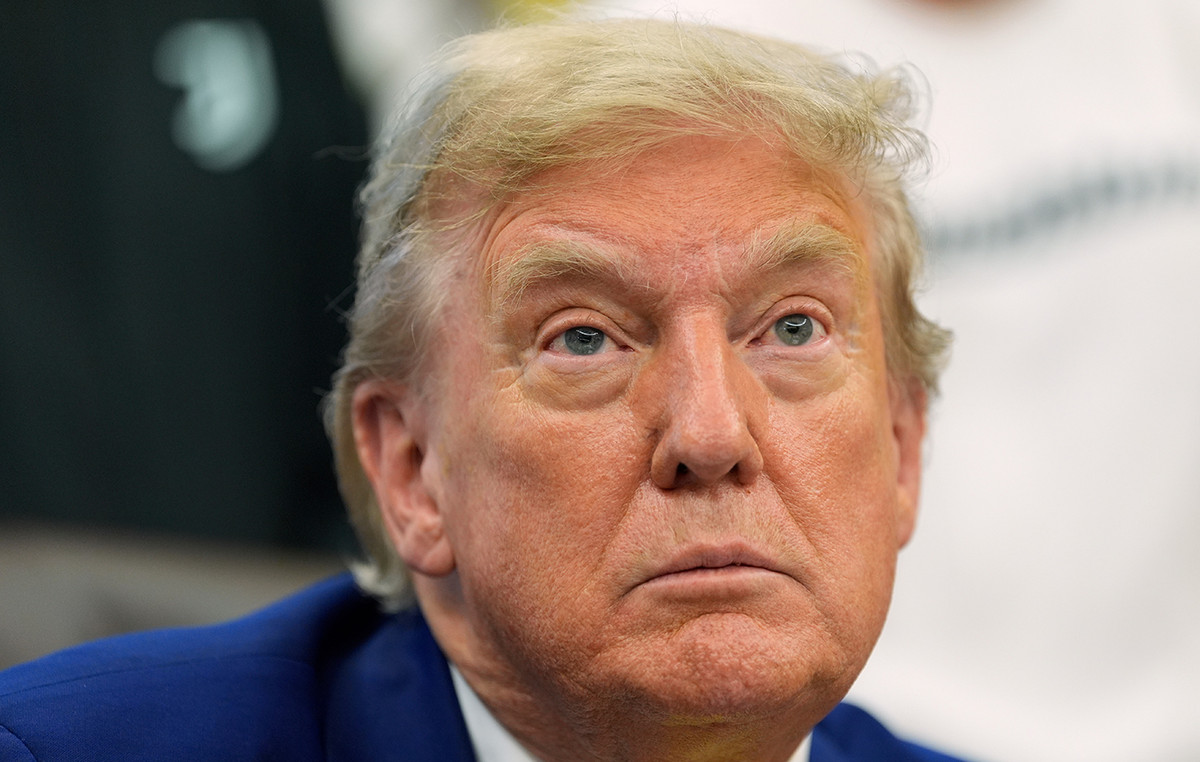- The EUR/USD can be seen as the United States and the European Union reach a commercial agreement, relieving the fears of a broader commercial conflict.
- The United States and the EU have established a 15% general tariff on the goods traded between them, which will enter into force on August 1.
- The Fed is expected to maintain its stable reference interest rate between 4.25% and 4.50% on Wednesday.
The EUR/USD gains ground after registering losses in the two previous sessions, quoting around 1,1770 during Monday’s Asian hours. The pair can be seen as the euro (EUR) receives support after the commercial agreement reached between the United States (US) and the European Union (EU) over the weekend, relieving the fears of a broader commercial conflict.
The two economies have reached a Marco Commercial Agreement on Sunday that establishes a 15% general tariff on the goods traded between them, which will enter into force on August 1. This agreement has ended a stagnation of months, according to Bloomberg.
The president of the European Commission, Ursula von der Leyen, said Sunday that the block agreed not to impose retaliation tariffs and promised to invest 600,000 million dollars in the United States in addition to existing expenses.
The European Central Bank (ECB) maintained interest rates unchanged last week, stating that disinflation advances according to its previous projections. The ECB emphasized the need for additional data on economic development before providing more clarity about its policy perspective.
Operators expect the United States Federal Reserve (FED) to maintain its stable reference interest rate between 4.25% and 4.50% at its July meeting on Wednesday. The FOMC press conference will be observed in search of signs that rates cuts can begin in September. The markets have valued almost 62% probabilities of a rate cut in September, according to the Fedwatch tool of the CME Group.
EURO – FREQUENT QUESTIONS
The euro is the currency of the 19 countries of the European Union that belong to the Eurozone. It is the second most negotiated currency in the world, behind the US dollar. In 2022, it represented 31 % of all foreign exchange transactions, with an average daily business volume of more than 2.2 billion dollars a day. The EUR/USD is the most negotiated currency pair in the world, with an estimate of 30 %of all transactions, followed by the EUR/JPY (4 %), the EUR/GBP (3 %) and the EUR/AU (2 %).
The European Central Bank (ECB), based in Frankfurt (Germany), is the Eurozone reserve bank. The ECB establishes interest rates and manages monetary policy. The main mandate of the ECB is to maintain price stability, which means controlling inflation or stimulating growth. Its main tool is the rise or decrease in interest rates. Relatively high interest rates (or the expectation of higher types) usually benefit the euro and vice versa. The GOVERNMENT BOOK of the ECB makes decisions about monetary policy in meetings that are held eight times a year. The decisions are made by the directors of the National Banks of the Eurozone and six permanent members, including the president of the ECB, Christine Lagarde.
Eurozone inflation data, measured by the harmonized consumer prices index (IPCA), are an important economic indicator for the euro. If inflation increases more than expected, especially if it exceeds 2% of the ECB, it forces the ECB to rise interest rates to control it again. Relatively high interest rates compared to their counterparts usually benefit the euro, since they make the region more attractive as a place for global investors to deposit their money.
Published data measure the health of the economy and can have an impact on the euro. Indicators such as GDP, manufacturing and services PMIs, employment and consumer trust surveys can influence the direction of the single currency. A strong economy is good for the euro. Not only attracts more foreign investment, but it can encourage the ECB to raise interest rates, which will directly strengthen the euro. Otherwise, if economic data is weak, the euro is likely to fall. The economic data of the four largest economies in the euro zone (Germany, France, Italy and Spain) are especially significant, since they represent 75% of the economy of the euro area.
Another important fact that is published on the euro is the commercial balance. This indicator measures the difference between what a country earns with its exports and what you spend on imports during a given period. If a country produces highly demanded export products, its currency will gain value simply by the additional demand created by foreign buyers seeking to buy those goods. Therefore, a positive net trade balance strengthens a currency and vice versa in the case of a negative balance
Source: Fx Street
I am Joshua Winder, a senior-level journalist and editor at World Stock Market. I specialize in covering news related to the stock market and economic trends. With more than 8 years of experience in this field, I have become an expert in financial reporting.







